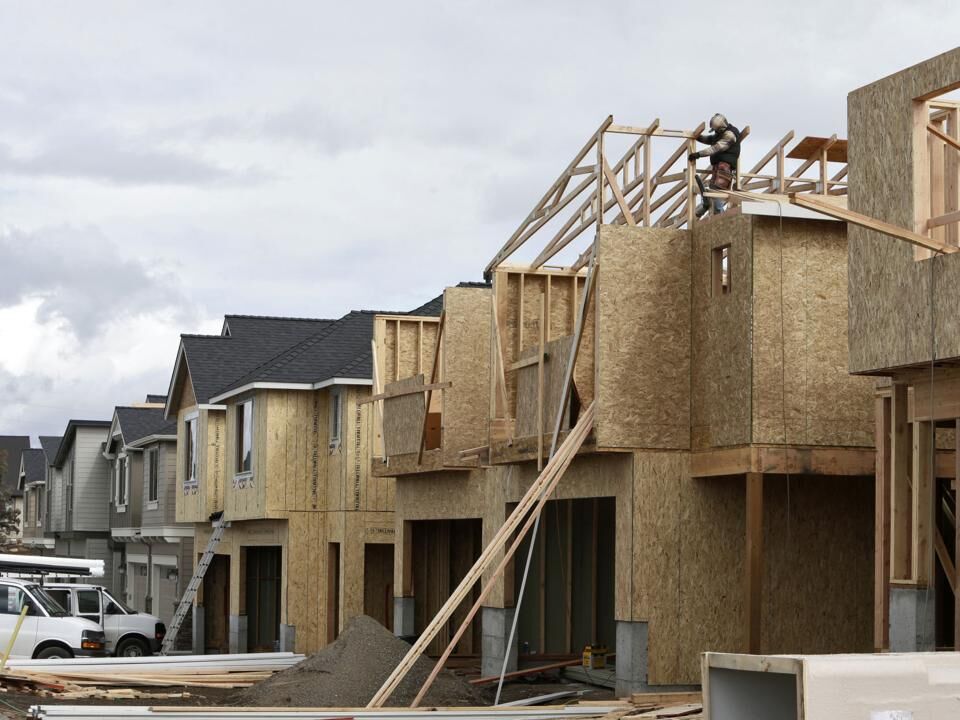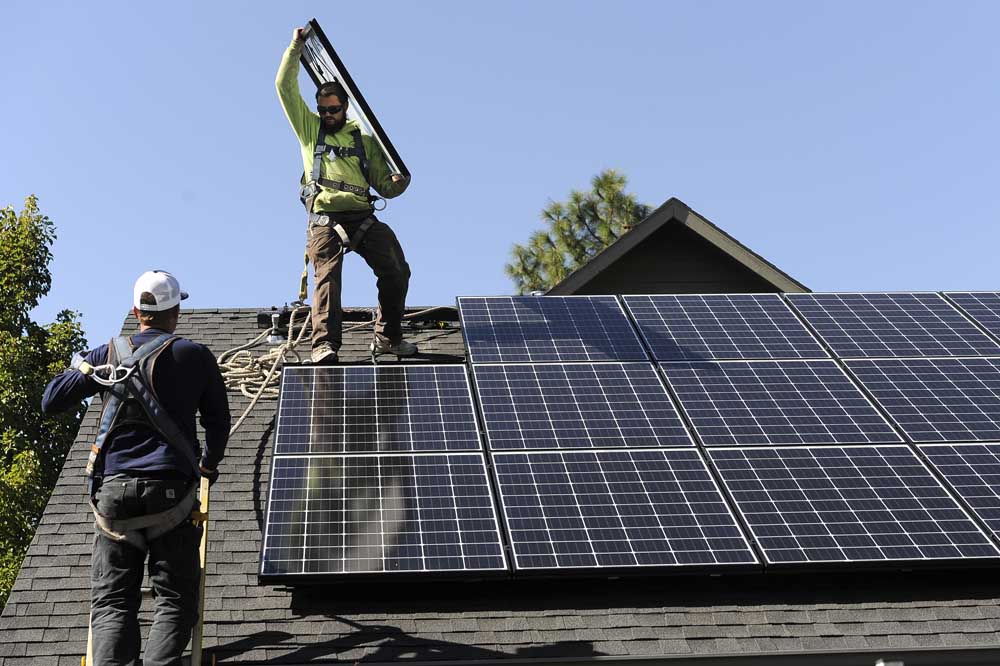Oregon lawmakers salvage climate change legislation
Published 9:22 am Friday, July 14, 2023

- Construction continues on homes in Northeast Bend.
Oregon lawmakers combined several bills — including some that the 42-day walkout of Senate Republicans had endangered — to promote energy efficiency in building construction and position the state to match billions in federal grants available for climate change measures.
The two bills, one of which combines 14 other bills, await the signature of Gov. Tina Kotek.
Trending
“This year, the Oregon Legislature made some historic new investments — and continued some important existing ones — to help Oregon communities protect drinking water and respond to climate change,” said Natalie Bennon, a spokeswoman for Sustainable Northwest, an organization based in Portland and focused on forests, farms, clean energy and water.
Although motor vehicles, power plants and fuels have drawn far more attention, buildings are Oregon’s second largest source of greenhouse-gas emissions at 34%, just below transportation at 35%, according to Oregon Department of Environmental Quality data. Included in the buildings category are fuels used to provide power, heating and cooling.
Original bills
The work began last year, when a legislative task force advanced bills to set energy-efficiency standards for commercial buildings in general and state buildings, a retrofitting goal of 500,000 homes for heat pumps, and incentives for doing the work.
A Senate committee heard the original bills (SB 868-871) on March 13, when no one testified in opposition. But they and others got caught in the legislative logjam that resulted when minority Republicans walked out of the Senate from May 3 through June 15.
The House consolidated them and others into one big bill (HB 3409) with $45 million in state money.
Trending
The leaders of the 2022 task force were Rep. Pam Marsh, D-Ashland, and Sen. Kate Lieber, D-Beaverton, who issued statements upon legislative approval of the bills.
Lieber, who was Senate majority leader this session: “With hotter summers, colder winters, and more dangerous, extreme weather impacting Oregonians year around, we have to update our buildings to keep Oregonians safe.
More efficient, resilient buildings will not only keep Oregonians and their families safer and healthier in their homes, but reduce utility bills and the pollution that is causing the climate crisis.”
Marsh, who led the House Committee on Climate, Energy and Environment: “As climate-related emergencies continue to threaten our way of life in communities across Oregon, it is essential that we adapt our infrastructure to be more sustainable. In an extreme heat event, having a more energy efficient home can be a lifesaver.”
Another provision in the larger bill sets aside $10 million to promote voluntary carbon-capture projects on forests and farmland, as proposed in SB 530, which a Senate committee heard Feb. 15 and then sent to the joint budget committee.
The Senate Natural Resources Committee was led by Sen. Jeff Golden, D-Ashland, who said the idea had been supported by Republicans and other critics of proposed climate-change actions.
Golden said afterward: “This is a pragmatic, incentive-based approach to addressing the causes and impacts of climate change in every community in Oregon. This package will invest in local solutions and economies, from studying wood waste as an alternative fuel source to local green infrastructure. I’m excited to see the greener, cleaner future the people of Oregon will build.”
A second bill (HB 3630) provides $5 million in state money for the Oregon Department of Energy to help businesses and communities secure federal grants, prepare for climate change and reduce its disproportionate effects on some communities.
A climate budget
House Speaker Dan Rayfield, a Democrat from Corvallis who was the chief sponsor of both mega-bills, repeatedly referred to a “climate budget” in meetings with reporters during the 2023 session.
Rayfield said he did not want Oregon to pass up a chance to secure some of the $370 billion total in grants and other incentives that Congress made available in the Inflation Reduction Act last year.
That “climate budget” includes $10 million to support and expand climate resilience hubs for emergency preparedness, which emerged from the 2020 Labor Day wildfires that swept through Oregon, and $20 million to replenish a state fund for renewable energy and community resilience projects initiated by local participants.
Before she was elected to an Oregon House seat from Southeast Portland in 2020, Khanh Pham was an advocate for the successful 2018 campaign to create a similar fund for small-scale renewable energy projects within Portland.
Pham, who sat on the House environment panel and also was House co-chair of the natural resources budget subcommittee, said the broader bill encompasses what she proposed to do in HB 2990.
Pham: “As Oregon experiences more heat domes, wildfires, and other climate-related disasters, House Bill 2990 gives communities the resources they need to prepare and build their networks well in advance of disaster rather than struggling to rebuild from square one every year.
Climate resilience hubs will also ensure our communities have the infrastructure and support they need for the often years-long, costly process of disaster recovery.”
The Senate co-chair of the budget subcommittee was Sen. Michael Dembrow, D-Portland, who said: “These bills will make the large-scale impact we need to reduce emissions while lowering everyday costs for Oregonians and invest in our land and our people through incentives for everything from green technology to carbon sequestration in working lands.”
Both HB 3409 and HB 3630 passed largely along party lines. Lynn Findley of Vale was the only Republican to vote for both bills in the Senate. Three Republicans in the House — Ed Diehl of Stayton, Cyrus Javadi of Tillamook and Mark Owens of Crane — voted for HB 3630.





